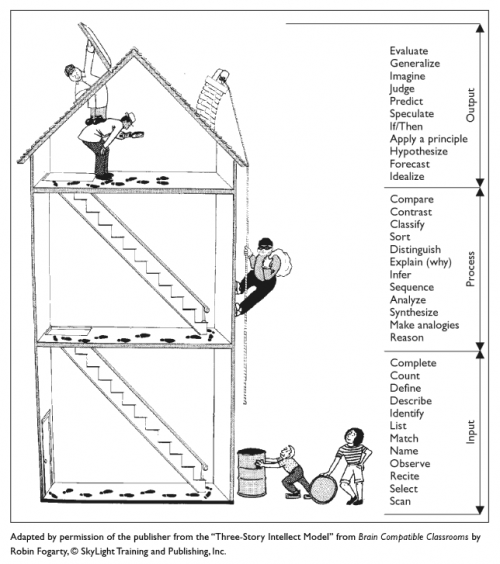Axemaker conclusions
The following is from the conclusion of the Axemaker’s Gift by James Burke and Robert Ornstein:
The first step may be to recognize that we can use our technology as it has been used time and again through history. We can use it to change minds, but this time for our own reasons in our own terms and at our own pace, if we use the coming technologies for what they could be: instruments of freedom. The very interactive nature of the modem world makes it less easy to block such an act and to continue with the old ways of hierarchy and division. But in any case, all that ever kept us in thrall of institutions was our ignorance of the kind of knowledge that could soon now be so easily accessible and understandable that it will be a waste of time to know it. When Gutenberg printed his books, he greatly lessened the power of memory and tradition. The new technologies will lessen the power of arcane, specialist knowledge. And when they do, we will all, in one sense, return to what we were before the first axe.
The culture we live in, based on the sequential influence of language on thought and operating according to the rationalist rules of Greek philosophy and reductionist practice, has wielded tremendous power. It has given us the wonders of the modem world on a plate. But it has also fostered belieh that have tied us to centralized institutions and powerful individuals for centuries, which we must shuck off if we are to adapt to the world we’ve made: that unabated extraction of planetary resources is possible, that the most valuable members of society are specialists, that people cannot survive without leaders, that the body is mechanistic and can only be healed with knives and drugs, that there is only one superior truth, that the only important human abilities lie in the sequential and analytic mode of thought, and that the mind works like an axemaker’s gilt.
Above all (and most recently) we have also been persuaded to think that it is unacceptable to be different or even to acknowledge that differences in abilities exist between us. But our survival may depend on the realization and expression of humanity’s immense diversity. Only if we use what may be the ultimate of the many axemalcer’s gifts—the coming information systems—to nurture this individual and cultural diversity, only if we celebrate our differences rather than suppressing them, will we stand a chance of harnessing the wealth of human talent that has been ignored for millennia and that is now eager, all around the world, for release.
I greatly enjoyed the book, but I understand where the only 1-star reviewer is coming from:
the suggested solution of a “web supported” world full of small democrartic communities is such hairy-armpit, dope-smoking, hippy rubbish I found myself laughing out loud. I’m fascinated to know who is going to design and construct and distribute the servers to enable this web-supported world, let alone who is going to host and maintain them
Burke got the wealth and attention that enabled this book through the medium of television, and i bet he tours the world for book launches on jumbo-jets. i wonder if the irony of that is lost on him.
It is very difficult to build jumbos or LSI processor chips as a cottage industry
pure twaddle
